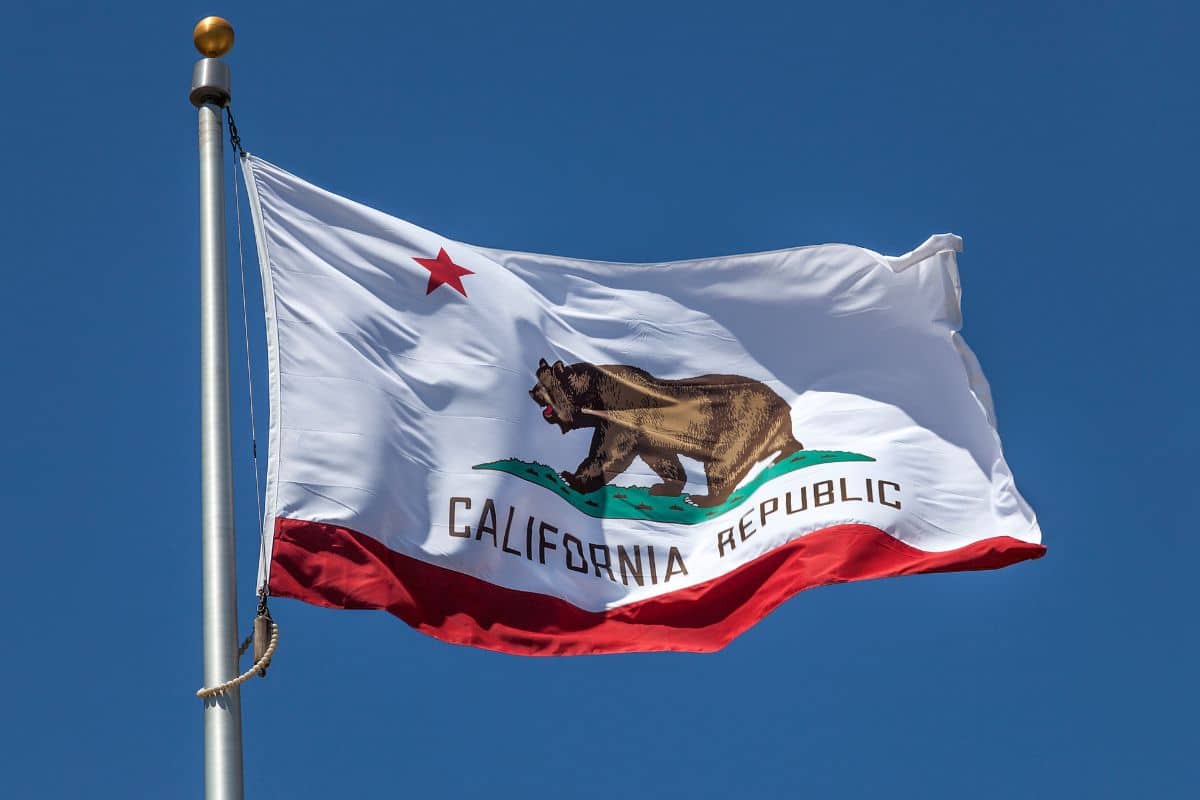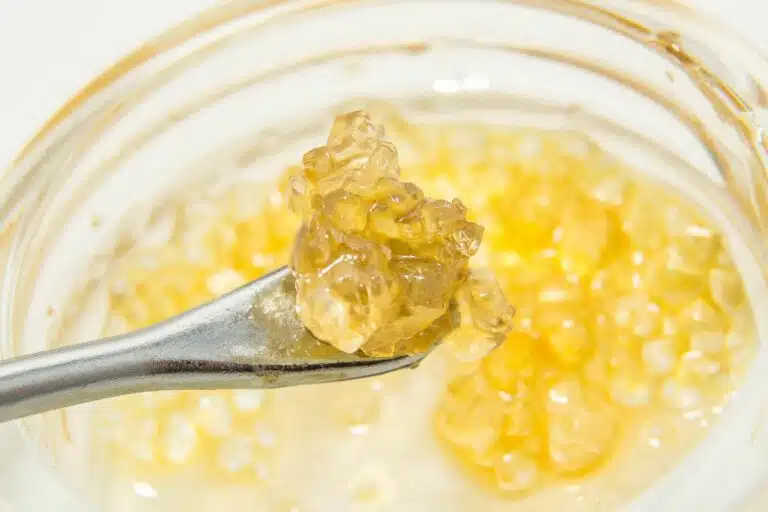Is THCa Legal in California: Understanding State Regulations
Jumping right into the excitement, we need to talk about THCa and THC – like siblings with their own cool mysteries, especially when you’re basking in the California sun. Thanks to the thumbs-up from Proposition 64 in 2016, if you’re 21 or older, you’re all set to dive into the world of cannabis without a worry. This thumbs-up lets you grow, have, and enjoy your favorite green buddy as much as you want. Wondering about how THCa squares up against THC? Well, you’ve stumbled upon a goldmine. It’s like going on an epic adventure, discovering what makes each one stand out and why you should sit up and take notice. Stick around, because unlocking this mystery could make you the coolest cannabis expert under the Californian sun.
THCa, or tetrahydrocannabinolic acid, is a non-psychoactive cannabinoid found in raw and live cannabis. As the precursor to the psychoactive compound THC, it is present in the plant in its acid form. When cannabis is heated, through smoking or vaping, THCa is converted into THC, the compound known for its intoxicating effects. In the context of California law, the regulations that apply to THC also extend to THCa, since it is inherently present in the legal cannabis products available throughout the state.
When exploring the implications of cannabis use, it is important to recognize that the laws can differ between federal and state levels. However, within California’s borders, you are permitted to possess and consume cannabis and its derivatives in compliance with state regulations, meaning that THCa is legal under these state laws. But remember, despite state legality, cannabis remains classified as a Schedule I substance at the federal level.
Legal Landscape of THCa in California
California’s legal approach to THCa is shaped by a complex interplay between federal and state laws. Your understanding of THCa’s legality is crucial as it varies depending on its source and THC content.
Federal and State Law Interactions
Under federal law, cannabis is classified as a Schedule I controlled substance by the Controlled Substances Act. However, the 2018 Farm Bill created a legal distinction between hemp and marijuana, legalizing hemp-derived products containing less than 0.3% delta-9 THC on a dry weight basis. In California, state law aligns with federal legislation, but also provides a regulated framework for the medical and recreational use of cannabis products, including those containing THCa.
California State Regulations
The Department of Cannabis Control (DCC) oversees cannabis regulations in California. While THC is a regulated substance, THCa, which is non-psychoactive, falls into a gray area. THCa is legal in California when derived from state-legal cannabis plants, provided the end product complies with the required THC content limits for sale and consumption.
Legality of Hemp-Derived vs Marijuana-Derived THCa
| Property | Hemp-Derived THCa | Marijuana-Derived THCa |
|---|---|---|
| Source | Extracted from hemp plants, low in THC | Extracted from marijuana plants, higher in THC |
| THC Content | THC content is less than 0.3% (in the U.S.) | THC content can be higher, exceeding legal limits in some areas |
| Psychoactive Effects | Generally non-psychoactive | May have psychoactive effects due to higher THC content |
| Legal Status (in the U.S.) | Legal under the 2018 Farm Bill if THC < 0.3% | Subject to state-specific marijuana regulations |
| Federal Legal Status (in the U.S.) | Federally legal under the 2018 Farm Bill | Classified as a Schedule I substance by the DEA |
Hemp-derived THCa is legal on a federal level—thanks to the 2018 Farm Bill—and in California, as long as the total THC content remains under 0.3%. However, marijuana-derived THCa comes under California state law and is subject to its cannabis regulations, including possession, sale, and purchase limits.
Legal Thresholds of THC Content
In California, the legal status of cannabis products hinges on their THC content. Products with THCa that convert to delta-9 THC below the 0.3% threshold are considered hemp-derived and remain federally legal. Yet, crossing this threshold means the product is treated as marijuana, which is legal under state law but still a controlled substance at the federal level. Always ensure that any purchase of cannabis products meets the state’s regulatory requirements for THC content.
Understanding THCa and its Effects
When you explore the world of cannabis, particularly in California, one term you will likely encounter is THCa, or tetrahydrocannabinolic acid. It’s a non-psychoactive precursor to THC that has its own unique profile and set of benefits.
Chemical Profile and Properties of THCa
THCa is the acid form of THC found in the raw cannabis plant. Scientifically known as tetrahydrocannabinolic acid, THCa is a precursor to the well-known psychoactive compound tetrahydrocannabinol (THC). When cannabis is heated, through a process called decarboxylation, THCa is converted to THC. THCa itself is non-psychoactive and has a different chemical composition than THC, denoted as:
- Molecular Formula: C₂₂H₃₀O₄
- Molecular Weight: 358.48 g/mol
Psychoactive Effects and Medical Uses of THCa
THCa does not produce psychoactive effects because it does not directly activate the CB1 receptor in your brain, which is necessary for the ‘high’ associated with THC. However, THCa may have its own potential benefits. Some users report anti-inflammatory and neuroprotective effects, making it an area of interest for medical research. Additionally, it might also contribute to the entourage effect, enhancing the overall effectiveness of cannabis products.
Comparison with Other Cannabinoids
THCa is one of many cannabinoids found in cannabis. Unlike CBD (cannabidiol) or hemp flower-derived cannabinoids like delta-8 and delta-10 THC, THCa is not typically used for its psychoactive effects. However, it’s important for you to understand that the legal status of cannabinoids can vary, with clear distinctions in legality between the non-psychoactive compounds like THCa and their psychoactive counterparts such as delta-9-tetrahydrocannabinol, commonly found in marijuana products. In California, the nuances in the law can affect the availability of products containing different cannabinoids.

Compliance and Enforcement of THCa Regulations
When it comes to THCa, the non-psychoactive precursor found in cannabis, understanding the specific legal landscape in California is crucial. Compliance with state regulations and awareness of the consequences of non-compliance are important for anyone involved in the cannabis industry.
Role of Law Enforcement Agencies
In California, law enforcement agencies, including local police and the Bureau of Cannabis Control, are responsible for verifying that cannabis products, including those containing THCa, comply with state regulations. They actively monitor and enforce compliance, ensuring that only legally produced and sold THCa is available in the market. This is done to prioritize consumer safety while aligning with both state and federal laws.
Potential Legal Actions and Penalties
If you fail to comply with THCa regulations in California, you might face legal actions. Penalties can range from fines to criminal charges, depending on the severity of the violation. The DEA still classifies cannabis as a Schedule I substance, which can compound legal risks, especially if actions cross state lines or involve large quantities regarded as intent for distribution.
Labeling and Marketing Compliance
Your THCa products must adhere to strict labeling and marketing regulations. Labels need to accurately display THCa content and meet all state regulations for cannabis products. Mislabeling can lead to enforcement action, as it is considered a serious offense that misguides consumers. All marketing efforts should reflect the product’s compliance and not make unverified health claims, aligning with the broader hemp industry standards.

Market Dynamics of THCa in California
In the evolving landscape of California’s cannabis law, THCa plays a significant part with its nuanced legal status. Your understanding of this compound’s market dynamic is integral as it affects the sale, cultivation, and purchase of cannabis products in the state.
Dispensaries and Retail Impact
Dispensaries in California have rapidly adapted to accommodate the legal sale of THCa and other cannabis products. As a consumer, you will find that recreational cannabis dispensaries across the state offer a variety of products rich in THCa. These products are thoroughly tested, ensuring compliance with California’s stringent cannabis laws.
Consumer Demand and Product Availability
Consumer demand continues to shape the market, with a clear incline toward products containing THCa. Availability is broad, ranging from raw flower to concentrates, which are popular for their potency and are often sought after for both recreational and medicinal use. As THCa transitions to THC upon heating, its presence in products is a key factor in your choice.
Cultivation and Manufacturing Trends
The cultivation sector reflects the legality and popularity of THCa. Growers in California are scaling up their operations to meet the consumer demand for high-THCa strains. The hemp industry also intersects here, with a focus on ensuring that hemp-derived products meet the legal THC threshold post-decarboxylation. In the manufacturing trend, there’s a conscious effort to produce diverse THCa products while adhering to regulations to fuel the robust cannabis industry.

Ongoing Developments in Cannabis Legislation
Cannabis legislation in the United States is evolving rapidly, with various states adopting differing approaches towards the legal status of cannabis-derived compounds, and federal oversight continuing to influence future prospects. As you navigate through the intricacies of these laws, it’s critical to understand both state and federal perspectives.
State-by-State Legal Variations
Every state has the authority to enact its laws governing cannabis. Here’s a brief overview:
- Legal for adult use: States like California, Oregon, Washington, and Colorado have legalized cannabis for recreational use.
- Medical cannabis only: Florida, New York, and Illinois allow cannabis solely for medical purposes.
- No legal recognition: Idaho remains one of the few states with no legal recognition of cannabis in any form.
These variations reflect a patchwork of regulations that can be challenging to reconcile with the overarching federal law.
Federal Oversight and Future Prospects
In contrast to state laws, federal law currently classifies THC as a Schedule I substance. The passage of the 2018 Farm Bill was significant, however, as it differentiated hemp (containing less than 0.3% THC) from marijuana and legalized its cultivation.
The future is uncertain, but trends suggest a gradual movement towards:
- Increased legalization: States such as Arizona and New Jersey continue to push for legalizing adult-use cannabis.
- Federal reevaluation: There’s ongoing discussion about federal cannabis policy reform, which could lead to rescheduling or descheduling cannabis.
Your understanding of ongoing developments is crucial as the landscape of cannabis legislation continues to shift. Stay informed to navigate these changes confidently.
Safety Considerations and Public Perception
In California, the legal status of THCa and cannabis-derived products hinges on both safety regulations and public opinion. As you navigate the cannabis laws, it’s crucial to understand the specific concerns regarding the safety of THCa use and the nuances of public attitudes toward its legalization and regulation.
Safety Concerns Regarding THCa Use
Tetrahydrocannabinolic acid (THCa) is the non-psychoactive precursor to THC found in raw and unheated cannabis. While THCa itself doesn’t produce psychoactive effects, upon heating, it converts to THC, a compound known for its psychoactive properties. Due to the potential for this conversion, regulatory bodies scrutinize products containing THCa to ensure public safety. For your safety, it is essential to use products from reputable sources that adhere to the rigorous safety standards California mandates, which include thorough preclinical safety and toxicology studies.
The Food and Drug Administration (FDA) does not regulate cannabis products at the federal level in the same way it does for food and drugs. State regulations, however, provide guidelines for production and consumption. For instance, California has taken steps to regulate the labeling of THC and THCa contents in cannabis products, giving you clear information on what you are consuming. If you choose to use cannabis products for their potential medical benefits, ensure they meet the state’s requirements, as these regulations are in place to prioritize your safety and well-being.
Public Attitudes Toward THCa and Cannabis
Public opinion in California has historically been on the forefront of shifting attitudes toward cannabis use, both recreational and medical. In 1996, California became the first state to legalize medical cannabis, reflecting a progressive public stance on cannabis use. Public opinion has continued to influence cannabis laws and regulations, with a growing acceptance leading to the legalization of recreational cannabis in recent years.
It is worth noting that societal attitudes fluctuate and can vary widely across different communities. Your understanding of these dynamics is important when considering the larger conversation around cannabis and THCa. As public opinion continues to evolve, so too may the legal landscape of cannabis in California, presenting a continuous push and pull between regulatory measures and societal beliefs. Keep an eye on the latest regulatory updates and public health recommendations to stay informed on this topic.
Legal Loopholes and Uncharted Territories
In California, the legal landscape around THCa and cannabis products is complex. Your understanding of such intricacies can affect interactions with the market, from purchasing smokable products to exploring new cannabinoid research.
Exploitation of Legal Ambiguities
Your awareness of THCa’s legal status is vital. While cannabis is legal in California, federal law still classifies it as illegal. This disparity creates a loophole where some cannabis products may exist in a grey area. Unregulated products, including certain forms of THCa, might be marketed under this ambiguity, claiming legality that isn’t clearly defined by state regulations.
The Rise of Synthetic Cannabinoids
Synthetic cannabinoids are a point of contention. These man-made chemicals, similar to compounds found in cannabis, can be both legal and unregulated. The rapid innovation in creating these substances often outpaces regulation, leading to products that are technically legal but may carry serious health risks. Your knowledge of these compounds is crucial, especially as they become more prevalent in the cannabis industry.
Impact on Cannabis Research and Development
The research and development of cannabis products, including THCa, is an area brimming with potential. However, the fluctuating legal status at the intersection of state and federal law can hinder progress. With the legal ambiguities surrounding cannabis, it’s important for you to recognize how these conditions might influence the scope and direction of both academic and commercial research within the industry.

Economic Impact of THC and THCa Regulations
The legal nuances of THC and THCa in California have wider economic implications that affect both the hemp and cannabis industries, including future investments.
Effects on the Hemp and Cannabis Industries
The implementation of safety testing regulations for cannabis in California has influenced the pricing structures of cannabis products. For example, mandatory cannabis testing has been observed to impact the price of legal cannabis, potentially altering its competitive position against illicit market alternatives. Due to these testing requirements, your business might face increased operational costs that, without economies of scale, could hamper profitability.
The differentiation in legal status between THC (psychoactive) and THCa (non-psychoactive precursor) underscores divergent regulatory approaches. You must account for this in your production and marketing strategies, as the legal framework affects not just product formulations but also labeling and sales practices. Illinois’s requirement for labeling not just Δ9-THC but also THCa, for instance, can serve as a guideline for California’s regulatory evolution.
Influence of THCa Legal Dynamics on Investments
The nuanced legal trends concerning THCa have a considerable impact on your investment decisions. Considering inside California’s cannabis law, the acceptance of THCa in products might be seen by investors as an indicator of the market’s maturity and stability, potentially signaling a safe investment environment. As legalization evolves, this particular compound’s legal treatment can serve as a bellwether for how regulatory environments are shaping.
Furthermore, if you are an investor or entrepreneur in the cannabis sector, appreciating the economic impact of these regulations is pivotal. Understanding the liabilities and compliance costs intertwined with THC and THCa regulations will enable you to make more informed investment decisions and forecast the potential for growth and market expansion in California’s dynamic cannabis industry.
Frequently Asked Questions
Navigating the legal landscape of THCa in California can raise various questions. This section provides clear answers to frequent inquiries regarding THCa’s legal status.
What are the federal laws regarding THCa?
Under federal law, THCa is not listed explicitly as a controlled substance. However, as an analog of THC, it could potentially fall under the Federal Analog Act if intended for human consumption.
How does the legality of THCa compare between California and other states?
In California, THCa is legal within the state’s regulated cannabis market. Other states may have different regulations, with some maintaining a ban on all cannabis products, including THCa, and others allowing it under a legal framework similar to California.
Can THCa be shipped legally across state lines?
Interstate shipment of THCa is prohibited under federal law, as cannabis and its derivatives remain illegal at the federal level, even when shipping from one state with legal cannabis to another.
Is there a difference between the legal status of THCa and Delta-9 THC?
Yes, there is a difference; Delta-9 THC is the primary psychoactive compound in cannabis and is a Schedule I controlled substance under federal law. THCa is a non-psychoactive precursor to Delta-9 THC and is legal in California within its regulated market.
What is the potency level of THCa compared to other cannabinoids?
THCa is a non-psychoactive precursor to THC and has no psychoactive effects in its raw form. When heated, it converts to Delta-9 THC, which has significant psychoactive potency.
Does the legal status of THCa classify it as a controlled substance?
In California, THCa is not classified as a controlled substance when contained within cannabis products regulated by the state’s cannabis laws. However, it could be considered federally illegal under the Federal Analog Act, depending on the context of its use or sale.










